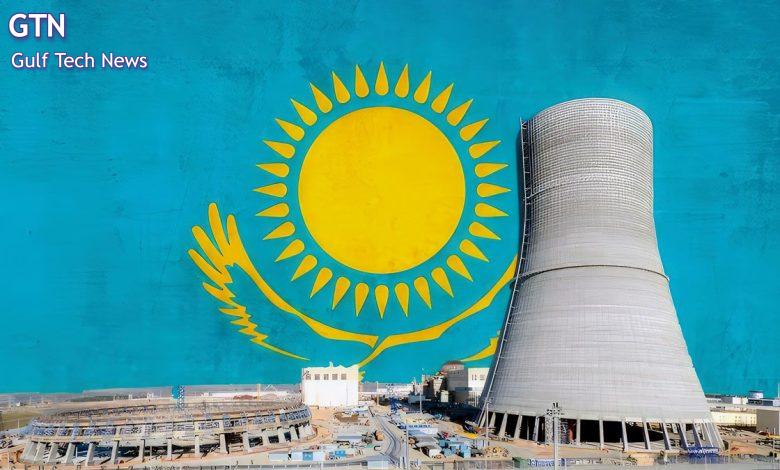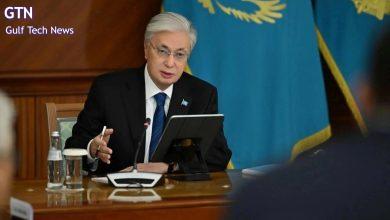Kazakhstan’s Nuclear Vision 2025: Strategic Pathways to Energy Security and Sustainable Growth

Written by: Dr. Abdulrahim Ibrahim Abdulwahid
In an era defined by the global urgency to transition toward clean, reliable, and sustainable energy sources, the Republic of Kazakhstan stands at the threshold of a historic transformation in its energy landscape. As the world’s leading uranium producer and a nation with deep-rooted experience in nuclear science and technology, Kazakhstan has reasserted its strategic ambition to become a peaceful and responsible nuclear power producer.
In 2025, Kazakhstan has advanced from deliberation to action. Guided by a clear political mandate, strong public support, and robust international partnerships, the government has launched a comprehensive roadmap for the introduction of nuclear power into its national energy mix.
This initiative—driven by the twin imperatives of ensuring long-term energy security and reducing dependence on aging coal-fired infrastructure—reflects Kazakhstan’s broader commitment to climate responsibility, economic modernization, and technological advancement.
Kazakhstan’s approach to nuclear power in 2025 reflects its strategic goals of enhancing energy security, supporting economic growth, and contributing to global efforts towards sustainable development in the energy sector.
Kazakhstan’s key efforts
This analysis explores Kazakhstan’s key efforts, programs, and proposals related to nuclear power development in 2025. It examines the policy frameworks, infrastructure planning, public engagement strategies, and international partnerships that underpin the nation’s nuclear agenda. From site selection and vendor procurement to regulatory oversight and environmental safeguards, Kazakhstan’s nuclear trajectory is both ambitious and meticulously structured.
With the first nuclear power plant slated to begin construction in the coming years, Kazakhstan is not only positioning itself as a regional energy hub but also setting a precedent for how resource-rich nations can responsibly embrace nuclear energy as a pillar of sustainable development.
Here, we can say that, Kazakhstan is actively pursuing a nuclear power program to address its growing energy needs and reduce reliance on fossil fuels, particularly coal. The country, a major uranium producer, aims to construct its first nuclear power plant, potentially with the involvement of Russia’s Rosatom and China’s CNNC. A national referendum in October 2024 showed strong public support for the project, with nearly 70% of voters approving it.
Kazakhstan managed a national referendum on the construction of a nuclear power plant representing a 63.66% voter turnout on 6 Oct. 2024 for building the country’s first nuclear power station as the world’s top uranium producer looks to boost its power generation capacity, to backs $12 billion Nuclear Power Plant while the power station is due to be built near the semi-abandoned village of Ulken in the Kazakh steppes.
Kazakhstan is actively pursuing the development of nuclear power to diversify its energy sources and reduce reliance on fossil fuels, with plans to build its first nuclear power plant. The country is taking a phased approach, starting with a large reactor and considering smaller modular reactors for the future. Multiple sites are being evaluated, including Ulken on Lake Balkhash, Kurchatov, and Mayek. Kazakhstan is also assessing proposals from global reactor suppliers, focusing on safety, reliability, and sustainability.
Nuclear Proposals 2025
Kazakhstan’s efforts and proposals regarding nuclear power for 2025 are quite significant. Here’s an analysis based on recent developments and initiatives:
- Nuclear Energy Development Strategy: Kazakhstan has been actively pursuing the development of nuclear energy as part of its long-term strategy for energy independence and sustainability. The country aims to diversify its energy mix, reduce reliance on fossil fuels, and meet growing energy demands.
- Nuclear Power Plant Projects: Kazakhstan is considering the construction of nuclear power plants (NPPs) to enhance its electricity generation capacity. This includes exploring partnerships with international entities for the construction and operation of these plants.
- Uranium Production: As a major global supplier of uranium, Kazakhstan plays a crucial role in the nuclear fuel cycle. The country’s uranium mining and processing capabilities support both domestic energy needs and international nuclear fuel supply chains.
- Regulatory Framework: Kazakhstan has been strengthening its regulatory framework for nuclear safety and security. This includes aligning its practices with international standards set by organizations like the International Atomic Energy Agency (IAEA).
- International Collaboration: Kazakhstan actively participates in international forums and collaborations related to nuclear energy. This includes joint research projects, training programs for nuclear professionals, and sharing best practices in nuclear safety and security.
- Public Awareness and Acceptance: Kazakhstan is also focusing on public awareness and acceptance of nuclear energy. Efforts include educational campaigns, stakeholder consultations, and transparent communication about the benefits and risks associated with nuclear power.
- Environmental Considerations: The country is mindful of environmental impacts associated with nuclear energy and emphasizes sustainable development practices in its nuclear projects.
Local workforce & supply chain:
– Project to create 10,000 jobs at peak construction (2032), and 2,000 permanent operations jobs
– Training programs underway at national nuclear institutions and local colleges for technicians, dosimetrists, turbine specialists, etc.
– Reactor fuel assemblies to be produced by Ulba‑TVS (Kazakh‑Chinese JV)
Financing & Risk Management
– Estimated costs: Initial budgeting of USD 10–12 billion for two-unit plant; later estimates peer up to USD 15 billion.
– Sanctions resilience: Contracts will include clauses to manage risks from U.S. sanctions targeting entities like Rosatom
– Funding path: Likely through export loans and international financial institutions
Bottom Line
at the end of this article, we confirm that Kazakhstan is making major strides toward establishing a domestic nuclear energy sector, backed by public support, strategic legislative action, and strong international partnerships.
With Rosatom spearheading the first plant and CNNC poised for a second, the country is aligning its nuclear ambitions with broader goals: reducing coal dependence, securing energy supply, developing local industry, and maintaining geopolitical balance.




